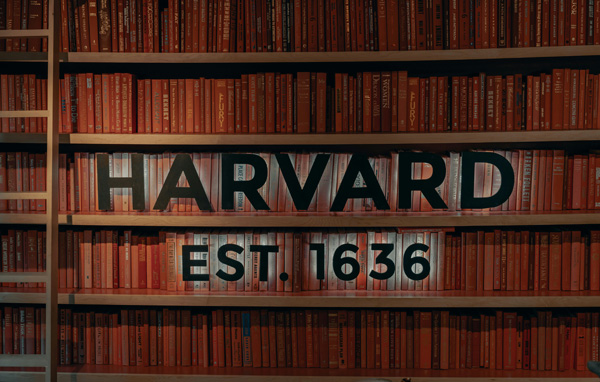Harvard’s commencement highlights legal battle over international student enrollment

[Harvard U retail store. Photo Credit to Unsplash]
Harvard University’s 374th Commencement took place on May 29, 2025, just hours after a federal judge extended a temporary restraining order against the U.S. government.
The court ruling protects Harvard’s right to enroll international students while the university fights a legal challenge from the Department of Homeland Security (DHS).
On May 22, DHS announced its intention to decertify Harvard from the Student and Exchange Visitor Program (SEVP), which authorizes accredited institutions to sponsor F-1 and J-1 visas for international students.
DHS claimed Harvard had failed to comply with federal data-sharing requirements and raised concerns over national security and reports of antisemitic incidents on campus.
Harvard countered with a lawsuit, calling the government’s action “unjustified and harmful.”
In its lawsuit, the university argued that the revocation would cause irreparable harm to students, academic programs, and its global reputation.
On May 29, U.S. District Judge Allison D. Burroughs agreed to extend the restraining order that temporarily blocks the revocation.
In her ruling, she noted that Harvard had shown a credible risk of long-term damage if the decertification were enacted before a full hearing.
At the graduation ceremony that followed, Harvard President Alan Garber directly acknowledged the legal tension in his speech.
“Members of the Class of 2025, from down the street, across the country, and around the world… just as it should be,” he said, drawing sustained applause from graduates and guests.
Many graduates wore white flowers or stickers bearing the message, “Without our international students, Harvard is not Harvard,” in a display of solidarity.
International students make up approximately 25% of Harvard’s student body, with more than 7,000 enrolled from over 140 countries.
Their presence contributes significantly to academic research, campus diversity, and Harvard’s funding ecosystem.
According to the Association of International Educators (NAFSA), international students contributed $43.8 billion to the U.S. economy in the 2023-24 academic year and supported over 378,000 jobs.
Universities argue that policies restricting international enrollment could damage the U.S.’s status as a hub for global education.
The case against Harvard comes amid a wave of immigration-related policy reversals under President Donald J. Trump’s second administration.
Since returning to office in January 2025, the administration has reinstated several controversial visa restrictions first introduced during Trump’s earlier term.
Secretary of State Marco Rubio recently announced new restrictions targeting Chinese students in STEM fields, citing national security concerns.
However, critics contend that the policies unfairly target foreign scholars and threaten academic freedom.
Though Harvard is the only university facing SEVP decertification, many institutions are watching closely.
International education associations and legal scholars have warned that similar actions could be taken against other universities, especially with large international student populations or campuses engaged in political activism.
Legal experts suggest the outcome of the case could set a national precedent.
If DHS succeeds, it could become easier for the government to revoke SEVP status at other schools.
If Harvard prevails, the ruling may reinforce the right of universities to function without undue political interference.
Beyond the legal implications, the case has personal consequences for thousands of students.
International graduates who walked at Commencement this year now confront uncertainty about their future in the U.S.
Some fear that without SEVP status, they may lose their legal right to stay in the country, even after earning their degrees.
Others are concerned about visa renewals, job eligibility through Optional Practical Training (OPT), and their families' long-term stability in the United States.
Harvard officials have promised to continue providing legal guidance and institutional support to those affected.
For now, the restraining order allows international enrollment to continue, but the legal battle is far from over.
What should have been a day meant to celebrate academic achievement instead became a powerful reminder of the precariousness facing global scholars.
For many graduates, walking the stage symbolized not just achievement but also a show of resilience in the face of uncertainty.

- Yewon Kim / Grade 11 Session 10
- Longmeadow High School

![THE HERALD STUDENT REPORTERS [US]](/assets/images/logo_student_us.png)
![THE HERALD STUDENT REPORTERS [Canada]](/assets/images/logo_student_ca.png)
